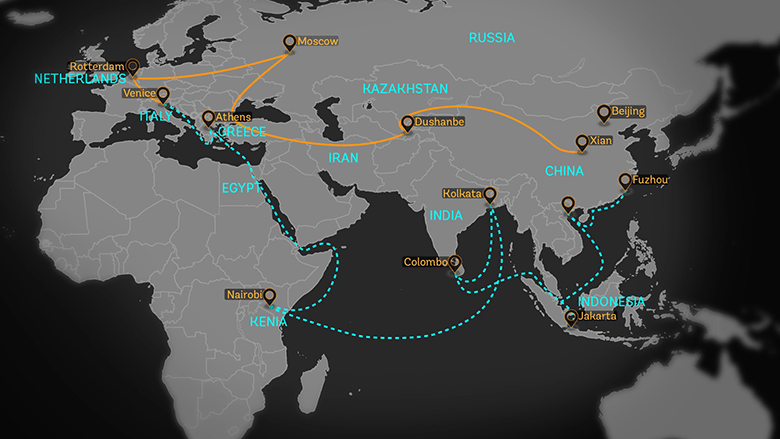In February 2022, Argentina and China signed a memorandum of understanding under the Silk Belt and Road Initiative.
The Belt and Road Initiative aims to boost cooperation and connectivity between countries through land and ocean routes.
According to the Argentine government, the initiative aims to develop a platform to stimulate trade and investment, market integration and economic cooperation between regions.
In the medium term, this memorandum aims to boost bilateral trade in goods and services, and increase investments for the productive sector and for the development of technological capabilities.
This memorandum indicates that financing for strategic infrastructure works in Argentina will consist of two tranches: one for projects agreed at the fifth meeting of the Strategic Dialogue for Economic Cooperation and Concertation (DECCE) held in January 2022, which has already been approved, and a second tranche for projects that Argentina plans to present to the ad hoc group to be created between the two countries under the memorandum.
Belt and Road Initiative
In addition to the memorandum on the Belt and Road Initiative, Argentina and China signed 13 different inter-institutional cooperation documents related to different subjects, including green development, digital economy, space development, technology and innovation, education and university cooperation, agriculture, earth sciences, public media and nuclear energy.
In 2022, Argentina exported to the Chinese market products with a customs value of US$8.593 billion, a year-on-year rise of 20.5%, according to China’s General Administration of Customs.
Conversely, China exported goods to the Argentinean market for a value of 12,769 million dollars, representing a 19.4% annual increase.
While Argentine sales were dominated by beef, soybeans, barley and sorghum, the corresponding Chinese sales were mainly telephones, certain inorganic chemicals, heterocyclic compounds with nitrogen heteroatoms only, and computers.
The Chinese economy has shifted from a planned economy to a more market-oriented economy.
In recent years, the Chinese government has implemented measures emphasizing the use of market forces for economic reform and the reduction of state ownership of productive assets and the establishment of better corporate governance in business enterprises; however, a substantial portion of China’s productive assets is still owned by the Chinese government.

